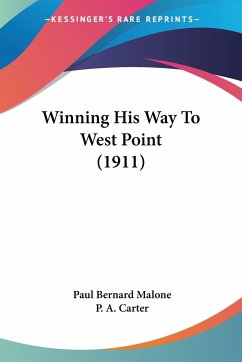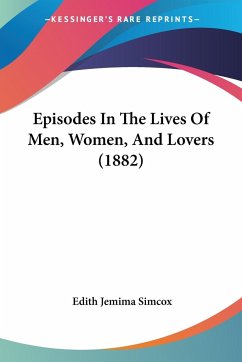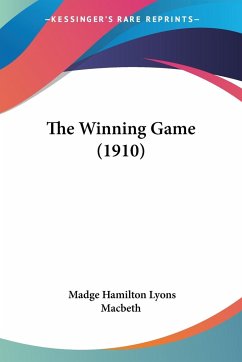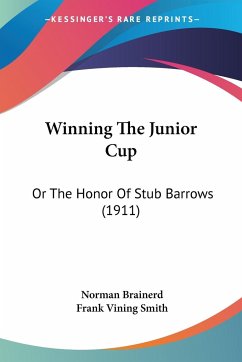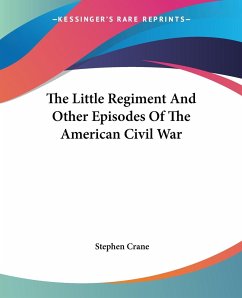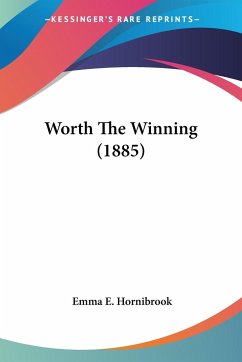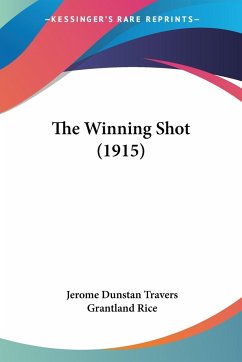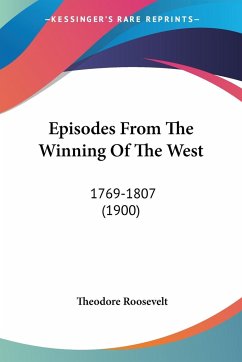
Versandkostenfrei!
Versandfertig in 1-2 Wochen

PAYBACK Punkte
10 °P sammeln!




This scarce antiquarian book is a facsimile reprint of the original. Due to its age, it may contain imperfections such as marks, notations, marginalia and flawed pages. Because we believe this work is culturally important, we have made it available as part of our commitment for protecting, preserving, and promoting the world's literature in affordable, high quality, modern editions that are true to the original work.
Theodore Roosevelt, born on October 27, 1858, in New York City, became the 26th President of the United States and one of the nation's most influential leaders. Despite struggling with asthma as a child, Roosevelt developed a passion for physical fitness and the outdoors, which shaped his energetic and adventurous personality. After attending Harvard University, he entered public service, winning a seat in the New York State Assembly in 1881. Roosevelt's national recognition grew during the Spanish-American War when he led the Rough Riders to victory in the Battle of San Juan Hill. His heroism propelled him to the governorship of New York and, eventually, to the vice presidency under William McKinley. After McKinley's assassination in 1901, Roosevelt became the youngest U.S. president at 42.As president, Roosevelt championed progressive reforms, including trust-busting, labor rights, and conservation, with his "Square Deal" emphasizing fairness for all Americans. He was instrumental in establishing national parks and wildlife preserves, solidifying his legacy as a conservationist. His foreign policy, guided by the motto "Speak softly and carry a big stick," expanded American influence globally. After leaving office, Roosevelt remained politically active, running unsuccessfully for president again in 1912 under the Progressive "Bull Moose" Party.Roosevelt continued to advocate for military preparedness and progressive ideals throughout his life. A prolific writer, he published works on history, politics, and nature. He died on January 6, 1919, at the age of 60, but left a lasting legacy as a reformer, conservationist, and advocate for American strength and progress. Roosevelt's vibrant personality and far-reaching accomplishments have made him one of the most iconic figures in U.S. history.
Produktdetails
- Verlag: Kessinger Publishing, LLC
- Seitenzahl: 288
- Erscheinungstermin: 24. September 2009
- Englisch
- Abmessung: 229mm x 152mm x 16mm
- Gewicht: 421g
- ISBN-13: 9781120192370
- ISBN-10: 1120192374
- Artikelnr.: 27426417
Herstellerkennzeichnung
Libri GmbH
Europaallee 1
36244 Bad Hersfeld
gpsr@libri.de
Für dieses Produkt wurde noch keine Bewertung abgegeben. Wir würden uns sehr freuen, wenn du die erste Bewertung schreibst!
Eine Bewertung schreiben
Eine Bewertung schreiben
Andere Kunden interessierten sich für




